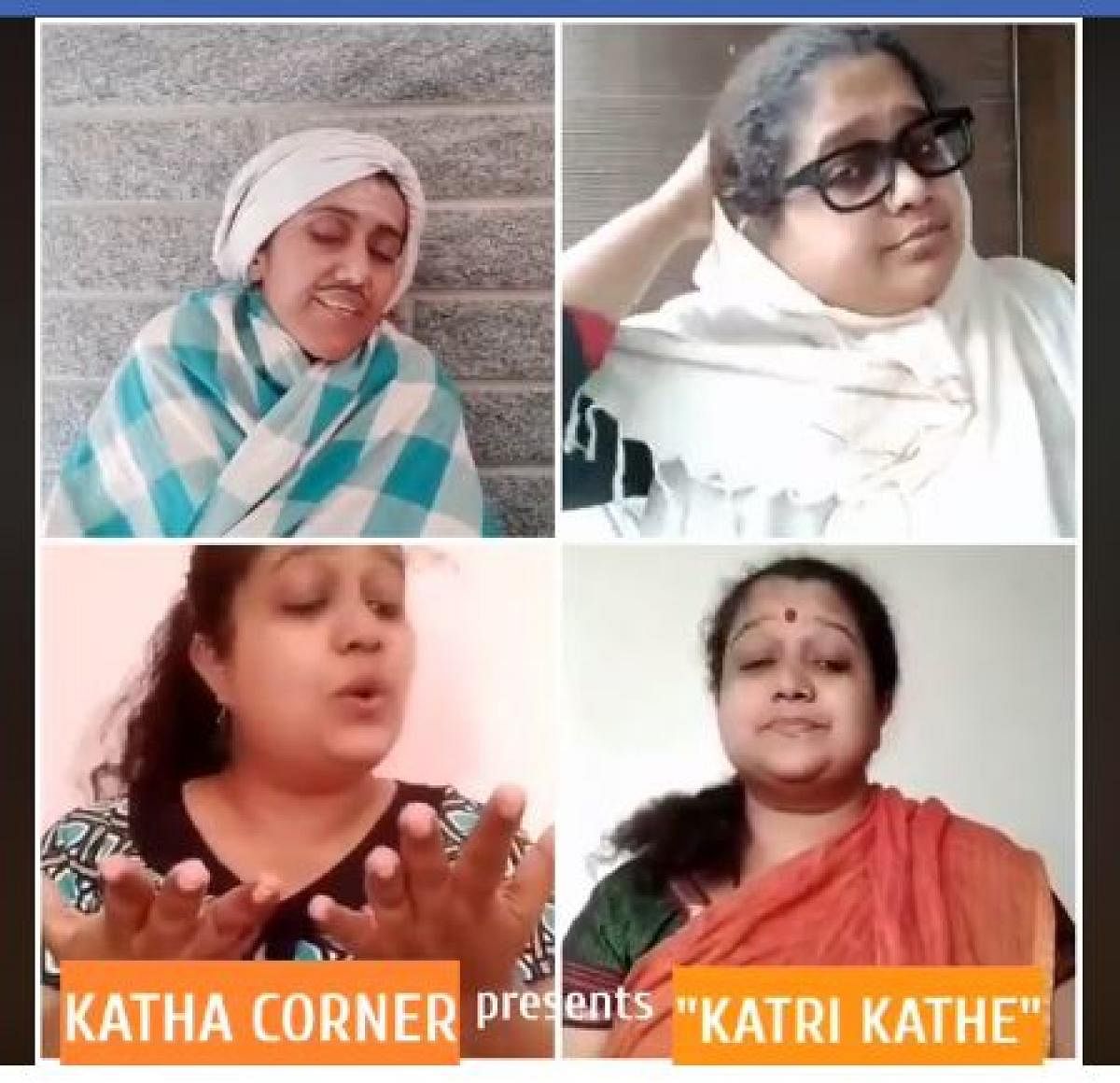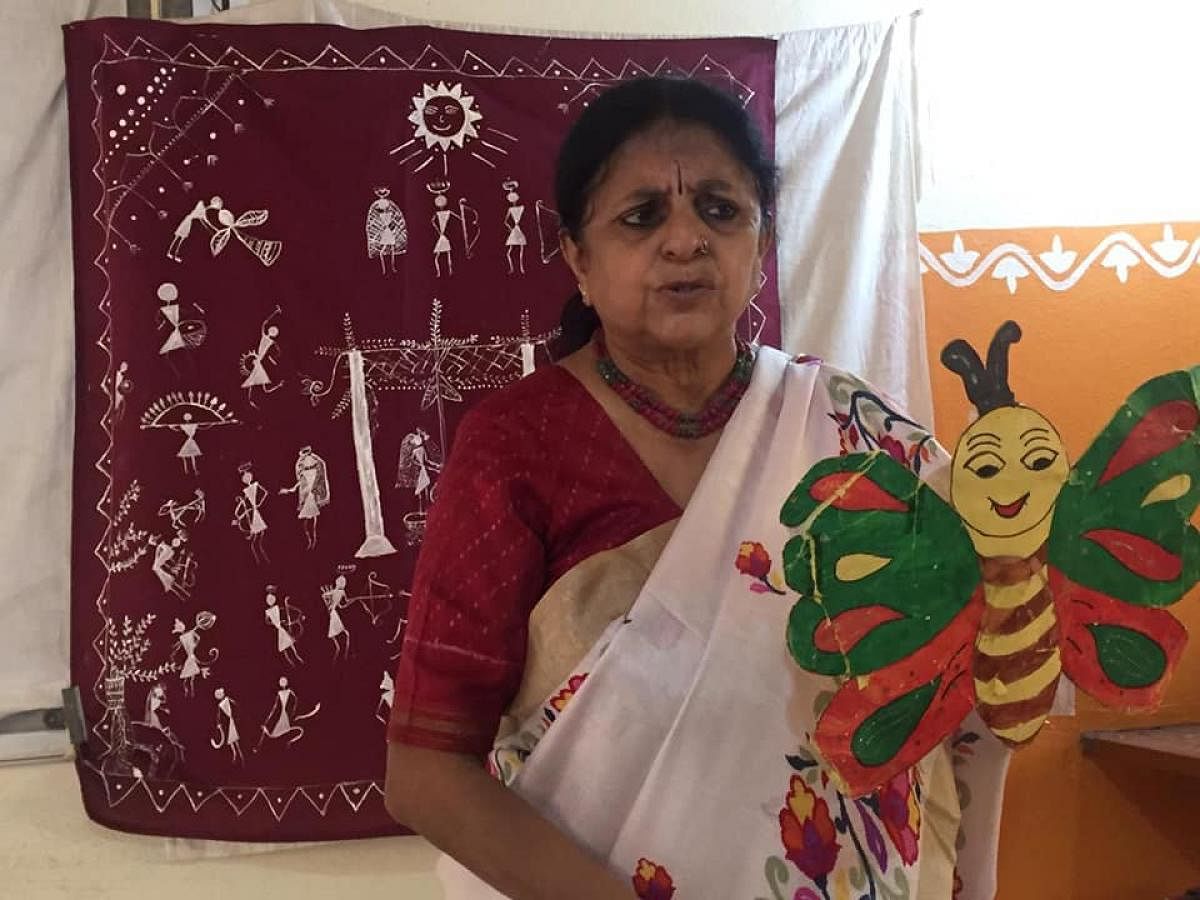

From days when our grandparents regaled us with stories at bedtime, to our smartphones now taking up that role, the culture of storytelling has come a long way.
These storytelling sessions have become an interesting hobby for many, from parents who want to keep their children occupied during the lockdown, to adults who want to take a break from daily chores.
In Karnataka, ‘Harikathe’, the traditional form of storytelling, was a favourite pastime and was quite popular. In Harikathe, which literally translates to ‘the story of Hari (Vishnu)’, the storyteller, accompanied by a vocalist and an instrumentalist, narrates stories from the epics, religious texts and folklore. The narration is often laced with humour and satirical commentary on contemporary issues, to make the stories more interesting. The popularity of Harikathe started declining during the 1980s.
It was during the mid-90s that oral storytelling came to the fore again as a performance-based activity, with a few storytelling clubs popping up in Bengaluru.
When Geeta Ramanujam, a teacher-turned-storyteller started the Kathalaya Trust in Bengaluru to revive the art of storytelling, she didn’t imagine that oral storytelling would enthral the masses just like it did earlier.
“I felt there is a need to open an academy to train people in storytelling. Initially, people did not understand the need for storytelling but gradually, we got calls from corporate companies, NGOs and schools requesting for storytelling sessions,” says Geeta.
According to Sowmya Srinivasan, a founding member of Bangalore Storytelling Society, there have been huge strides in storytelling from 2013 onwards, as the art gained popularity in the education and corporate sectors.
“With the situation, we are in, the highly adaptable storyteller has gone online with training and performance sessions. We have to find ways and means to reach out to the world with our art and craft. Online storytelling helps in doing this,” says Sowmya.
Going digital
“Through webinars and video sessions, the storyteller is adapting to new means of communication. But nothing can beat a live audience. Fatigue of video calling platforms is very high and is a challenge,” she adds.
But there are many advantages as well. Online storytelling has helped people share their stories across the globe with little to no cost. Ramya Srinidhi, co-founder of Katha Corner, says “During the lockdown, I saw a huge influx of storytelling, the reach was humongous, we could reach people beyond boundaries.”
Usha Murthy, a parent from Bengaluru, came across these online storytelling sessions when she was looking for ways to keep herself and her son meaningfully engaged.
“I attended Ramya Srinidhi’s sessions with my son, we found them very interesting as she uses various props and costumes to narrate her stories,” says Usha.
“Earlier, I used to take my daughter to Ranga Shankara for weekend storytelling sessions. Given the current situation, when we are confined to our homes, these online sessions help in uplifting the child’s mood. Also, my daughter is learning about different topics through these online sessions,” says Ashwini Herur, a mother of two daughters.
Regardless of what age group you belong to, stories never fail to keep you hooked, if narrated well. Storytellers feel that these virtual storytelling sessions have breathed new life into the art.
If you are keen to learn the art of oral storytelling or wish to listen to interesting stories, you may sign up for online courses offered by Kathalaya by logging on to kathalaya.org or check their YouTube channel ‘Kathalaya Storytelling’. You may also check Katha Corner’s Facebook page ‘Katha Corner’ and Soulspace Storytell’s Facebook page @soulspacestorytell.